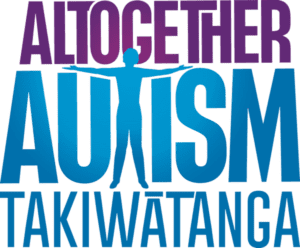L-R: Waikato arable farmers John and Margaret Hodge with hearing therapist Cherry McWha
The nine months Margaret Hodge spent unable to hear family voices or the familiar country music songs she and husband John always played to each other, was the worst period of her life.
The 75-year-old Waikato arable farmer woke on Monday 14 October 2013 unable to hear anything out of her left ear.
Given she has never had any hearing in her right ear, it meant she was deaf.
“It’s not a nice world to live in when you can’t hear ….. you don’t realise what a gift hearing is,” she says in her softly-spoken voice which during the period she was deaf became loud like a fog-horn.
“Why didn’t you tell me?” she asks John.
He doesn’t answer, but he clearly thinks it was the least of her problems during that period where she carried a white board and a pen so she could communicate with people.
Today Margaret has a cochlear implant in her left ear and while she can hear out of it, it’s a different type of hearing than what she had before although she is grateful she can at least hear her family and friends’ voices now.
A cochlear implant is an electronic medical device that replaces the function of the damaged inner ear. Unlike hearing aids which make sounds louder, cochlear implants bypass the damaged parts of the inner ear and stimulate the nerve of hearing to provide sound signals to the brain.
“It’s not a natural sound, it’s a mechanical sound,” she says.
“I can hear this and that out in the garden, I can hear the tui sing, I can hear the wind whistling and the traffic on the road.”
But the hearing is not good enough for her to go back to playing the piano and the organ. And sometimes when there is too much noise around her, it can be painful. Only in the last year has she been able to drive a car again.
But a cochlear implant has given her a second chance at hearing.
Margaret was born in Wanganui and brought up in Cambridge, attending the small rural Whitehall School and then Cambridge High School before marrying John 53 years ago and settling in Te Kowhai, west of Hamilton.
The couple went on to have two children and four grandchildren.
She has no idea when she lost the hearing in her right ear, possibly at birth, but there were no such things as Before School Checks then to pick up the problem.
Margaret could hear out of the other ear and compensated accordingly until three years ago. Leading up to the morning she woke up without any hearing, she’d had a heavy cold, and not felt well.
Specialists can’t be sure but there is a suspicion she had a nasty infection which went into the ear. Later on Monday 14 October, she collapsed and was taken to Waikato Hospital where she came under the care of otolaryngologist specialist Malcolm Giles and audiologist Emma-Jane Opie.
Otorhinolaryngology or otolaryngology is the area of medicine that deals with conditions of the ear, nose, and throat region.
While Margaret was given a hearing aid for her left ear, it was not enough; so on 30 June 2014 specialist Robert Gunn performed the cochlear implant at Gillies Southern Cross Hospital in Auckland.
And unlike in the movies, where people are miraculously able to hear instantly, the process after surgery is a more measured one which involves “fine-tuning” the electrodes which stimulate the cochlear nerve and sends signals to the brain.
What followed for Margaret after that is what John calls “training the brain” to hear again.
“What I’ve discovered since we’ve both been part of the Waikato Cochlear Implant Support Group, is that every person who gets a cochlear implant is different.”
Margaret has two-monthly aural rehabilitation sessions with Life Unlimited hearing therapist Cherry McWha in Hamilton to improve Margaret’s ability to manage her cochlear implant.
Need help with your hearing?
Life Unlimited Hearing Therapy is a national service funded by the Ministry of Health which provides a free, independent hearing service to New Zealand citizens and permanent residents aged 16 years and over. Freephone 0800 008 011 or visit www.hearingtherapy.co.nz



